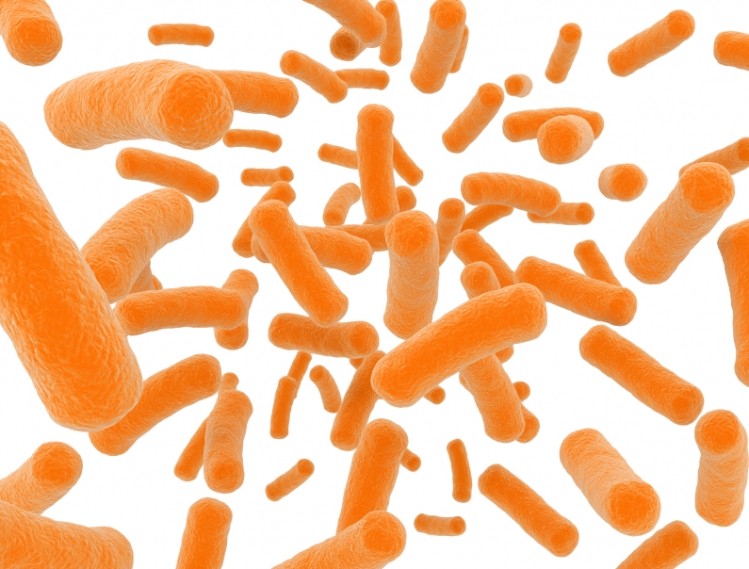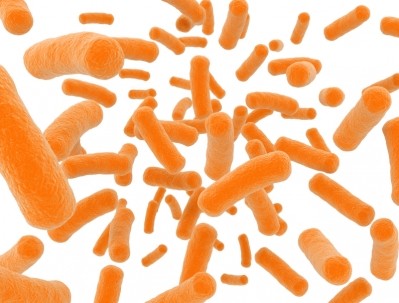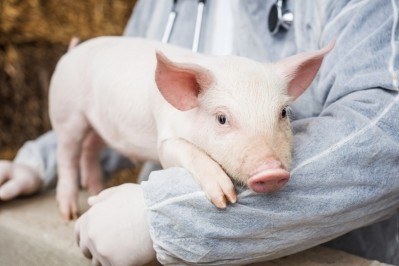Proven L. reuteri probiotic bacteria soon to be viable for pig feed formulations

Probiotics are considered growth and health stimulators and are used extensively in pig feeds.
However, at present, the probiotic bacteria used most widely in feeds are the most heat resistant strains - not the most documented strains, Dr Chengli Hou of China Agricultural University told FeedNavigator.
“Enterococcus faecium, Enterococcus faecalis, Saccharomyces boulardii, Bacillus subtilis and Bacillus licheniformis, with their resistance to heat, are the most widely used species of probiotics in the feed additives. But, the best studied probiotics are the lactic acid bacteria, particularly Lactobacillus spp and Bifidobacterium spp,” he said.
Dr Hou explained that sensitivity to heat and oxygen limited the use of L. reuteri in pig feeds, and for that reason, it was still in the experimental stages in this application.
“L. reuteri is sensitive to heat, so freeze drying is commonly used as a means of maintaining its stability. Then after L. reuteri is added to the feed, it is faced with oxygen and a wet environment. L. reuteri cannot survive in these conditions. We need to improve the processing technique or improve the viability of probiotic bacteria through strain selection,” he said.
Genetic improvement
Dr Hou and his team are working to genetically improve the bacteria, to make it more heat resistant.
“We have obtained the whole genome of L. reuteri I5007 and may be able to improve the survival and persistence of L. reuteri in feed formulations through genetic improvement technologies. We will also focus on the technology of microencapsulation to maintain bacterial stability,” he said.
This research comes amid growing interest in probiotics as alternatives to in-feed antibiotics.
The use of antibiotics as growth promoters is now illegal in the EU, Japan and Korea, and under review in other countries, including the US and China, leading the feed industry to look at alternatives such as pre- and probiotics, plant products and organic acids.
Within this context, Dr Hou and his team were funded by the National Natural Science Foundation of China to carry out a review of research into the efficacy of the probiotic bacteria L. reuteri in pigs.
They concluded that these bacteria can improve pig performance and health, strengthening the case for adding them to feed formulations.
“Numerous studies have demonstrated that they can positively improve performance, prevent diarrhea, alleviate stress, alter gastrointestinal microbiota, regulate the immune system, and thereby improve pig performance and health,” wrote the scientists, in the Journal of Animal Science and Biotechnology.
Modes of action
Besides highlighting the need to improve the viability of these bacteria in feed formulations, the review identified a gap in scientific knowledge about the mechanisms by which L. reuteri works to improve pig and health and performance.
Dr Hou said laboratory studies had indicated that the mechanisms include modulation of intestinal microbial communities, suppression of pathogens, immunomodulation, stimulation of epithelial cell proliferation and differentiation and fortification of the intestinal barrier. He added that these mechanisms had yet to be studied in the gastrointestinal tract.
FeedNavigator is hosting a free online forum on antibiotic reduction in poultry production on June 30, where experts will discuss the feeding strategies and protocols that support producers in this regard. Click here to register.
Source: J Anim Sci Biotechnol. 2015; 6(1): 14
“Study and use of the probiotic Lactobacillus reuteri in pigs: a review”
Published online 2015 Apr 9. doi: 10.1186/s40104-015-0014-3
Authors: Chengli Hou, Xiangfang Zeng, Fengjuan Yang, Hong Liu and Shiyan Qiao








